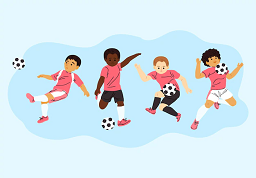- Being effective in a group/team you must:
- Understanding the feelings and needs of others.
- Being able to express our own ideas and needs and express emotion.
- Solving problems and Negotiating.
- Being able to “read” social situations accurately and adjust our personal behaviour to meet the demands of different social situations.
- Initiating and maintaining friendships.
- Task- listen to the questions and choose a category that suits your personality.
- The most effective answers will be discussed after each question.
ACTIVE CITIZENSHIP- TEAM PLAYER CHALLENGE
SOCIAL AND CIVIC COMPETENCES: COMPETENCE QUESTIONS
Social and Civic Competences include personal, interpersonal and intercultural competence and cover all forms of behaviour that equip individuals to participate in an effective and constructive way in social and working life, and particularly in increasingly diverse societies, and to resolve conflict where necessary. Civic competence equips individuals to fully participate in civic life, based on knowledge of social and political concepts and structures and a commitment to active
and democratic participation
- ABILITY TO COMMUNICATE CONSTRUCTIVELY IN DIFFERENT ENVIRONMENTS
- When you are working in a team comprised of people from a wide range of backgrounds how well are you able to give your opinion?
| You don’t say anything in case you get criticised |
You say what you think and don’t care about how others take it |
You say what you think but take care not to be rude or offensive |
- Feedback: People are more inclined to listen when you give opinion using constructive language
- How do you behave when you don’t seem able to get your point across to others?
| You give up and don’t try again |
You get angry and raise your voice and tell them to listen to you |
You calmly ask for them to listen to what you are saying |
You do nothing and then get mad when discussing it later with a friend |
- Feedback: It is better to try and make your point at the time and to do it calmly without raising your voice
- SHOWING TOLERANCE FOR DIFFERENT AND OR OPPOSING VIEWPOINTS
- You having coffee with friends and one of them expresses their views on a topic that you feel strongly about and they have the opposite view to you, what do you do?
| You get mad and shout at them telling them they are wrong |
You tell them you respect their view but yours is different and don’t get into a debate about it |
You tell them that you don’t agree with their view and explain why this is |
- Feedback: If you try and offer an alternative viewpoint your friend will have an opportunity to think about this and perhaps change his own view
-
- When another co-worker dismisses your opinion as being wrong, how do you respond to this?
| You ask them to explain why they think you are wrong and offer counter-arguments |
You get mad at them but don’t say anything as you don’t want an argument |
You get mad at them and argue your point |
You ask somebody else to give their view on who is right and who is wrong |
- Feedback: By asking them to explain why they think you are wrong they will have to provide the reason and you can accept this or counter their argument
- NEGOTIATING TO CREATE CONFIDENCE
- You are in a meeting that has been going round in circles with no decisions on what has to be done, what do you do?
| You summarise all the points made and ask for everyone to agree actions |
You do nothing as the longer it goes on the less work you have to do that day |
You raise your voice and tell everyone it has to be sorted as this is wasting everyone’s time |
- Feedback by summarising the main points you can help to move the meeting on towards agreed actions
-
- When you disagree with a course of action that your fellow team members want to take how do you respond?
| You Accept team decision |
You accept team decision but feel disappointed |
You accept team decision but tell others you are not happy with it |
You Continue to challenge the team decision and remain uncooperative |
- Feedback: When working in a team there has to be give and take to get the work done it is good to make your point and move on
- FEELING EMPATHY
- You arrive at work one morning and notice that your co-worker is not their usual happy and positive self, what do you do?
| You do not do anything it is none of your business |
You try to joke them out of it by making a few light hearted comments |
You tell them quietly that you have noticed they are a bit down and ask if they would like to talk about it |
You ask them what is wrong with them in front of everyone |
- Feedback it is better to acknowledge that you recognise your co-worker is worried or unhappy as even this
- acknowledgement can help a person to know that they are not alone
- COPING WITH STRESS AND OR FEELINGS OF FRUSTRATION
- You feel overwhelmed by your workload and are getting further and further behind and other people don’t seem to notice what do you do?
| You Speak to a supervisor remain calm and tell them you need help |
You tell a friend or family member and get their advice |
You get angry and let everyone know how you feel |
You get angry “inside” but don’t react in front of others |
- Feedback: It is better to speak to someone in the workplace and let them know you need support to deal with your workload
- SEPARATING PERSONAL AND PROFESSIONAL SPHERES
- You have lots of friends on social media and you all post photographs of your evenings out, some of the things you put up use language or show behaviour that wouldn’t be acceptable in your workplace and somebody recently got dismissed in your workplace for inappropriate posts - what do you do?
| You remove any potentially offensive posts and restrict who can see your posts to your friends |
You do nothing your private life is your own |
You close your social media account right away |
- Feedback: It makes sense to clean up your social media account as employers will check these out and bad news travels fast
CIVIC COMPETENCE
Civic competence is based on knowledge of the concepts of democracy, justice, equality, citizenship, and civil
rights, including how they are expressed in the Charter of Fundamental Rights of the European Union and
international declarations and how they are applied by various institutions at the local, regional, national,
European and international levels.
-
- What does the European Charter of Human Rights mean to you and other EU Citizens?
| You know it is very important, The Charter protects your rights and those of all EU Citizens |
You don’t know much about it it’s just another European law |
You think it is to do with human rights |
- Feedback: The European Charter of Human Rights is very important it protects the rights of all citizens of the European Union and it is legally binding to EU Institutions and national governments
-
- How do you contact a Member of the European Parliament?
| You can go to the European Parliament Website and search for the contact details of the MEP |
You can just Google them |
You can ask someone |
- Feedback: The European Parliament has its own website where you can search for an MEP in a number of different ways
-
- How are European laws made and implemented?
| The bigger and more powerful countries decide on the laws and how they are imposed |
The biggest groups of MEPs in the European Parliament are the majority and vote to bring in a new law |
The European Commission initiates new laws which have to be approved by the Council of Ministers and European Parliament |







